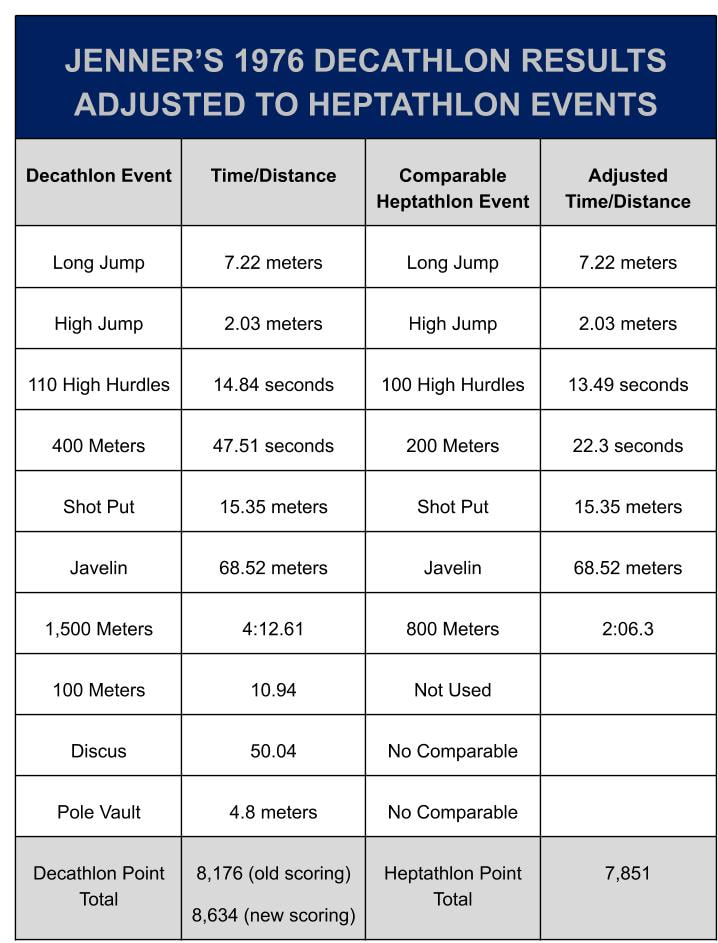Hurdles- When it comes to the high hurdles the decathlon event is 110 meters using hurdles which are 106.7 cm in height while the heptathlon is 100 meters with hurdles 83.8 cm in height. The only thing I did to adjust the time was take off the average time needed to travel 10 meters. Had I considered the height difference in the hurdles, I'm pretty certain the time would drop even more.
Sprint- To come up with an expected 200 meter time I divided the 400 meter time in half and reduced it by one second. Had I gone the route of simply doubling the 100 meter time I would have been using an expected finish time of 21.88 seconds.
Mid-Distance- To determine an 800 meter time I took the 1,500 meter time and cut it in half to get 2:06.3 Had I simply doubled the 400 meter time we would be looking at 1:35.02. If you look up how to convert a 400 time to an 800 time, track coaches frequently use the technique of doubling the 400 time and adding 10 seconds. If we did that, we would be using a time over 20 seconds faster than what I used.
Overall Adjustments- If you took the time to read through how I got the adjusted times and distances, it's pretty obvious that I was very conservative. Had I not been so conservative with my expected results, the expected heptathlon point total would have been closer to 8,600. It's worth mentioning that the world record in the heptathlon is 7,291 by Jackie Joyner-Kersee.



 RSS Feed
RSS Feed

